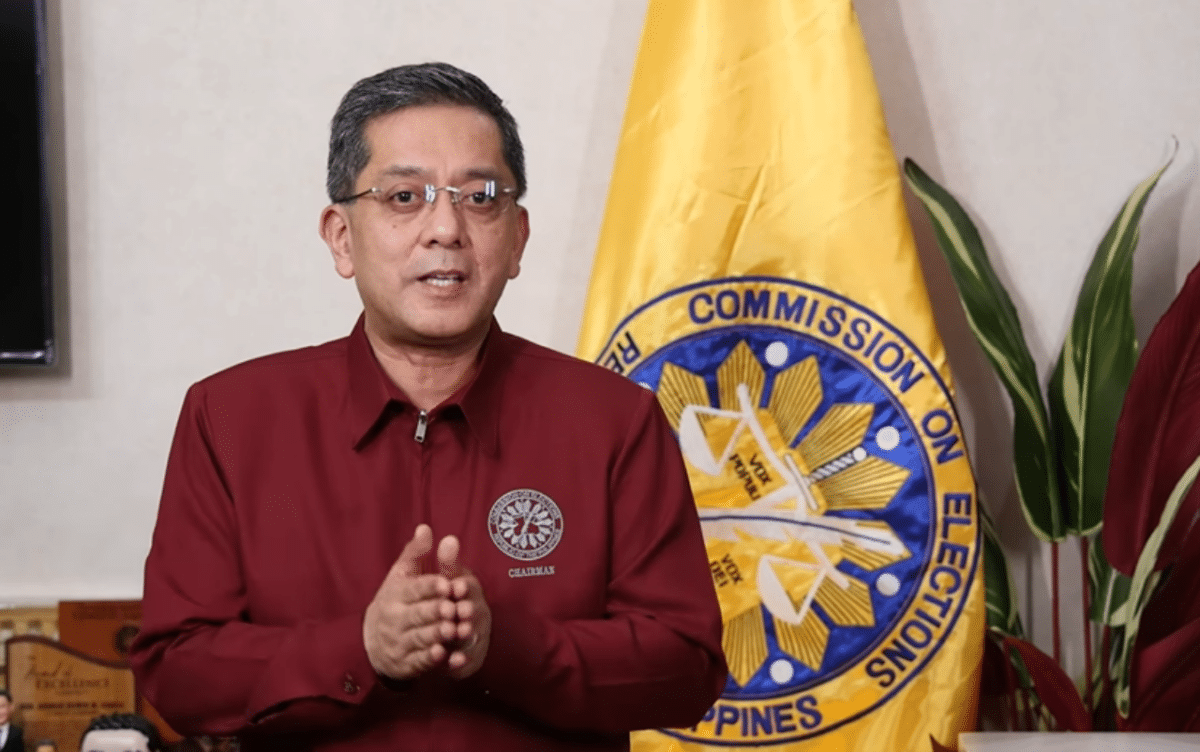Comelec reminds overseas voters of pre-enrollment period for 2025 polls

Comelec Chairman George Erwin Garcia (Screengrabbed from Comelec)
MANILA, Philippines — Commission on Elections (Comelec) Chairman George Erwin Garcia on Thursday reminded registered overseas Filipino voters to register in the pre-enrollment of the online voting, which is “easy to accomplish.”
The pre-enrollment period began on Thursday, March 20 and will end on May 7, 2025.
“In just the matter of two minutes, maa-accomplish nyo po yan. Kailangan lang, makuhanan kayo ng biometrics at maverify namin kung talagang kayo ‘yan,” Garcia told reporters in an interview.
(In just two minutes, you can accomplish it. They just need your biometrics and verify your identity.)
Garcia noted that Filipinos abroad must enroll first to access a code that they will use to cast their votes.
Garcia added that the Comelec is “lenient” in accepting any government-issued IDs, expired or new passport, seaman’s book, as a requirement for the pre-enrollment.
“Kinakailangang maverify kung talagang ikaw yan, kung talagang ikaw ang nagpapaenroll para di kami magkamali sa pagbibigay ng password,” Garcia added.
(Your identity needs to be verified so the poll body won’t err in issuing a password.)
The Comelec’s data showed that a total of 1,241,690 overseas Filipinos registered for the 2025 elections – 805,358 women and 436,332 men.
Seventy-seven posts worldwide will be offering an online voting option while 17 posts will use automated counting machines.
Addressing security issues
When asked to address doubts on the security of online voting, Garcia said that the first online voting system in the country is secure and hack-free.
He said that the system, or the overseas voting counting system (OVCS), had been checked by the Pro V&V, or the international certifying body.
He added that election watchdogs, political parties, and other interest groups found no irregularities in the system when the source code was conducted.
READ: Comelec’s system for midterm polls unlikely to get hacked, says US firm
“Lalong-lalo na yung ginawa natin na trusted build, napatunayan na yung hash, ito ay hack-free at hindi ito macocompromise ang integridad ng sistema kaya yung garantiya namin sa sambayanan ay ganun kataas,” he said
(What we did in the trusted build, it was proven that the hash is hack-free and the integrity of the system will not be compromised, that’s why our guarantee to the public is at an all-time high.)
“Kaya lang patuloy pa rin tayong magbabantay, alerto, aktibo sapagkat marami talagang masasamang loob na pwedeng magtry,” he added.
(But we will continue to monitor and be alert and active because many will attempt [to hack the system].)
The Comelec conducted a test on the trusted build for the OVCS last March 8, the last stage where the source code of the automated election system (AES) will be considered final and secured.
Trusted build refers to the process of assembling the overall program that will govern the entire AES.
Meanwhile, Garcia previously described source code as the “brain” that will check if the system will function accurately on counting and transmitting votes.
He earlier said that the trusted build is the last component that Pro V&V had to accomplish before it is submitted to the Technical Evaluation Committee (TEC), an independent body composed of the Department of Science and Technology, Department of Information and Communications Technology, and the Comelec.
Under the Election Automation Law of 2007, the TEC, through Pro V&V, is mandated to certify if the AES is “operating properly, securely, and accurately.”


















